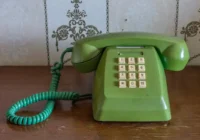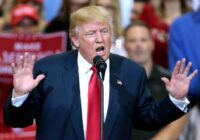The best that can be said for the Iran nuclear accord, or Joint Comprehensive Plan of Action (JCPOA), is that talks to renew the agreement are suspended; the worst, that it is on life support. Nevertheless, this current state of affairs may actually serve the interests of both the Iranian and American governments.
The indirect talks – Iranian negotiators refuse to meet face-to-face with their American counterparts, forcing the two sides to work through EU intermediators – ceased back in August after 16 months of fitful, inconclusive meetings. The Iranians have claimed their willingness to return to the table once the US side adopts “reasonable” positions. For its part, the US has stated the Iranians need to accept a “realistic approach.”
Obstacles in the Road
The ostensible reasons for the hiatus, however, appear more rooted in a couple of sticky issues for which no compromise may be possible. First, Iran has sought a binding commitment from the US side that the US will not abrogate a new accord, as then President Donald Trump did in 2018. US negotiators have responded clearly and unambiguously that no such guarantee can be extended beyond the administration of current President Joe Biden. In fact, the closest offer that could be made would be to submit a new JCPOA to the US Senate for ratification. The Biden administration has no such intention. And with good reason. There is precisely zero chance that it would secure the two-thirds majority necessary for approval. Even Senators from the president’s own party might vote against it. Senate ratification of the JCPOA will not happen and the administration would be beyond foolish to even contemplate submitting it.
The second issue holding up an accords renewal is the matter of the International Atomic Energy Agency (IAEA) safeguards investigation of past Iranian nuclear activities. These investigations date back to Iran’s alleged early work on, and development of a nuclear weapons program starting in 2002. As part of a JCPOA renewal, Iran is insisting that the investigations be closed. The US, unlike in the 2015 agreement, asserts it has no authority to order the IAEA to halt the investigations. In 2015, when the IAEA was under different leadership, the US and other parties to the JCPOA prevailed upon the IAEA to close the investigations file.
Following the US departure from the JCPOA and the change of leadership in the international organization, investigations resumed and still remain uncompleted. IAEA’s new Director General, Rafael Grossi, who assumed his position in December 2019, has made clear his intention to fulfill his organization’s mandate to complete the investigations and file a final report. It is very likely that his report will detail Iranian perfidy during the early 2000s to cover up its nuclear weapons development program, which would be a violation of the Nonproliferation Treaty to which Iran is a signatory.
So, these are the known gaps that remain before any new accord, or accord renewal, may be concluded. But there are also political concerns over a renewal on both the American and Iranian sides.
Procrastination Is Their Friend, for Now
The Iranians most certainly know that the Biden administration and its negotiators cannot agree to a forever agreement that binds future US administrations. Moreover, the Iranians also know that the administration would not send a newly negotiated accord to the US Senate where it would encounter certain defeat. Nor would such a move would serve Iranian interests. What the Iranians would like to have, however, is some certainty that the new JCPOA would last long enough that key economic benefits accruing to them – for example, lifting of financial sanctions and resumption of oil exports – would last long enough to jump start an inescapably deteriorating Iranian economy. A renewed agreement would likely boost the government’s standing among the Iranian people whose incomes and standard of living have been declining steadily since 2012.
Enter American politics. The Iranians know full well that Mr. Biden’s Democratic Party faces a key test next month in America’s midterm elections, whose outcome will determine control of the US House of Representatives and Senate. Current polls indicate a slim Republican advantage in the House elections and a too-close-to-call result in the Senate. Of late, however, Democrats’ fortunes seem to be improving.
Therefore, the Iranian reasoning may be that continued Democratic control of the Congress could be an indicator – albeit a far from conclusive one – of Democratic fortunes in the 2024 elections. The prospect of a Democrat in the White House through 2028 might just represent enough time to persuade the Iranians that a five-six year window is enough to risk signing a renewed JCPOA, without a clause binding future administrations. Therefore, waiting until after the early November elections may appear to serve Iranian interests.
The suspension also serves the interests of the US administration. With signs that voters’ sympathies may be tipping his and his party’s way, Joe Biden would be foolish to insert what would inevitably become an at-best highly controversial national security issue into the elections debate. Had he done so, Democratic party candidates and serving members of Congress would run for the exits, ducking any possibility of having to defend it, whatever its contents. Republican candidates would revel in its inadequacies and browbeat Democratic opponents. So, tabling the discussions for now is plain common political sense.
And After America’s Congressional Elections?
What then becomes of the talks after the November 8 elections? The administration’s desire to conclude the talks and reach an agreement remains real. US positions on the forever binding pledge and IAEA investigations aren’t going to change. It’ll still be “take it or leave it;” that is, the current text as it read back in August.
But pressures on the Iranian regime are increasing daily. Witness the demonstrations gaining momentum across Iran following the regime’s killing of Mahsa Amini. Iranian women, and Iranian men, too, seek greater liberty under the current theocratic regime’s oppressive control. Many demonstrators also seek greater economic opportunity and an improved standard of living. A renewed JCPOA could potentially raise hopes for the latter aspirations and, in the minds of the mullahs, assuage demonstrators. But no JCPOA, whatever its guise, is going to induce the regime to relax political control.
So, domestic politics is undoubtedly playing an outsize role in the fortunes of the JCPOA. For now, that plays into the hands of both sides. Nevertheless, after November 8, the JCPOA faces a very uncertain future that even life support may not be able to sustain.
The views expressed in this article are the author’s own and do not necessarily reflect Fair Observer’s editorial policy.
Support Fair Observer
We rely on your support for our independence, diversity and quality.
For more than 10 years, Fair Observer has been free, fair and independent. No billionaire owns us, no advertisers control us. We are a reader-supported nonprofit. Unlike many other publications, we keep our content free for readers regardless of where they live or whether they can afford to pay. We have no paywalls and no ads.
In the post-truth era of fake news, echo chambers and filter bubbles, we publish a plurality of perspectives from around the world. Anyone can publish with us, but everyone goes through a rigorous editorial process. So, you get fact-checked, well-reasoned content instead of noise.
We publish 2,500+ voices from 90+ countries. We also conduct education and training programs
on subjects ranging from digital media and journalism to writing and critical thinking. This
doesn’t come cheap. Servers, editors, trainers and web developers cost
money.
Please consider supporting us on a regular basis as a recurring donor or a
sustaining member.
Will you support FO’s journalism?
We rely on your support for our independence, diversity and quality.







Comment